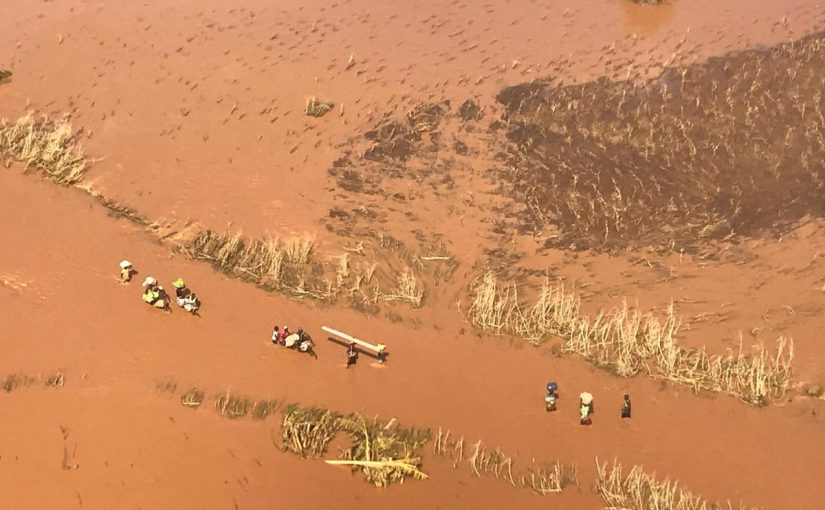Mozambique: Child attacked by pit-bull died in hospital, police confirms - Carta
IMF may offer emergency assistance – AIM Report

In file CoM
The International Monetary Fund (IMF) announced in Maputo on Tuesday that it may disburse a loan of up to 120 million US dollars to assist in the reconstruction of central Mozambique, following the devastation left by cyclone Idai.
This possible IMF support is in response to a request from the Mozambican authorities for emergency financial assistance under the IMF’s Rapid Financing Instrument (RFI).
Idai struck the central city of Beira on 14 March, with winds of up to 200 kilometres an hour, leaving much of the city in ruins. Its path took it into Zimbabwe, where it dumped an enormous amount of rainfall. This water flowed back into Mozambique along the main river valleys, bringing major flooding to much of Sofala and Manica provinces. So far, the confirmed death toll from the cyclone ad flooding is 468.
Ricardo Velloso, a Division Chief in the IMF Africa Department, told a Maputo press conference that the money would be a soft loan and not a grant. The most favourable terms the IMF could grant, he added, were a loan with a maturity of ten years with an interest rate of zero and a grace period of four or five years. “This is the softest loan the IMF has”, he said.
As for when the money might become available, Velloso said the IMF’s intention was that this should be as soon as possible..”Obviously there’s technical work that must be done about the numbers”, he said. “But my expectation is that this is a question of some weeks and not months”.
Although it was premature to estimate the macro-economic impact of cyclone Idai, Velloso was sure that the costs of reconstruction would be very significant, and that the international community will continue to have a vital role in providing assistance to Mozambique.
Velloso’s mission will remain in Mozambique until Friday, gathering information that will enable it to make a preliminary evaluation of the disaster.
But any emergency aid to deal with the effects of Idai has nothing to do with the wider question of normalising relations between Mozambique and the IMF.
The IMF suspended its programme with Mozambique in April 2016, when the scandal of the country’s “hidden debts” burst into the open. This term refers to the loans of over two billion dollars from the banks Credit Suisse and VTB of Russia to the three fraudulent companies Proindicus, Ematum (Mozambique Tuna Company) and MAM (Mozambique Asset Management), granted thanks to illegal loan guarantees issued in 2013 and 2014 by the government of the time, headed by President Armando Guebuza.
The IMF regarded concealing these debts as a serious breach of Mozambique’s obligation as an IMF member, since it deliberately hid from the Fund the true scale of the country’s foreign debt.
Subsequently the Mozambican government met one of the IMF’s key demands – an independent audit was held of Proindicus, Ematum and MAM by the company Kroll. But the audit was sabotaged by the chairperson of all three companies, Antonio Rosario, a senior officer in the Security and Intelligence Service (SISE), who even boasted of throwing the auditors out of his office.
Velloso thought there would be no new programme with the IMF until after the Mozambican general elections scheduled for 15 October.
“We think the best time for these discussions will be after the elections, to see the kind of fiscal and monetary policies and the structure of the new government”, he said.













Leave a Reply
Be the First to Comment!
You must be logged in to post a comment.
You must be logged in to post a comment.